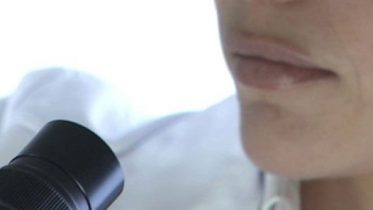Updates on the Unitary Patent and Unified Patent Court
- 07 October 2022
- Articles
After long preparatory work and several ups and downs over the last decade, it seems that the Unitary Patent system will finally become a reality. Thus, it is expected that the Unitary Patent package will enter into force in early 2023 (according to the Unified Patent Court) or Spring 2023 (according to the European Patent Office).
Recent developments
In its meeting of July 8th, 2022, the Administrative Committee took a series of important steps, among which we would like to highlight:
- The setting-up of local and regional divisions of the Court of First Instance was confirmed. These divisions will be in Austria (Vienna), Belgium (Brussels), Demark (Copenhagen), Finland (Helsinki), France (Paris), Germany (Düsseldorf, Hamburg, Mannheim, Munich), Italy (Milan), the Netherlands (The Hague), Slovenia (Ljubljana) and Portugal (Lisbon). The regional Nordic-Baltic division will be located in Sweden (Stockholm).
- Court’s Rules of Procedure and its Table of Fees were adopted, entering into force on September 1, 2022.
- The recommended list of the most suitable candidates to be appointed as judges of the Unified Patent Court was presented.
Implications of the Unitary Patent system
The Unitary Patent package aims to provide a common patent protection and litigation system for all participating EU Member States. Hence, with the entry into force, an applicant will have the possibility of having a single European patent with unitary effect, that is, the Unitary Patent (UP), and a single litigation system for a major part of the European market with the Unified Patent Court (UPC).
It is important to clarify that the entry into force of the Unitary Patent System will not change the current grant procedure performed so far by the European Patent Office. The system will only modify the procedures after grant. In the future, all European patents, Unitary Patents, SPCs issued for products protected by such patents and European patent applications will be subject to the jurisdiction of the Unified Patent Court for the participating EU member states. As for granted patents and pending applications, during a transitional period of seven (7) years (which can be extended for another seven years), applicants will have the possibility of deciding to opt-out from the new system by filing an opt-out request, so that National courts will then retain jurisdiction for the IP rights instead of the Unified Patent Court. This possibility will already exist during three to four months before the start of the unitary patent system (called a “sunrise period”).
The Member States which have ratified the UPCA (Unified Patent Court Agreement), and which will participate in the Unitary Patent system when it starts are Austria, Belgium, Bulgaria, Denmark, Estonia, Finland, France, Germany, Italy, Latvia, Lithuania, Luxembourg, Malta, the Netherlands, Portugal, Slovenia, and Sweden. The EU (European Union) Member States that have signed but not yet ratified the UPCA are Cyprus, Czech Republic, Greece, Hungary, Ireland, Romania, and Slovakia. Spain, Poland, and Croatia are not part of the Agreement and thus, validations after grant will still be needed to enforce IP rights in these countries.
Of course, all European Patent users, even those from countries that are not part of the agreement, such as Spain, will be able to own and enforce a UP and save fees (even if the validation in Spain must be maintained) and bring before the UPC any infringement in that regard.
At the same time, all infringements of EPs validated in UP Agreement countries (unless opted out) will be pursued before the UPC (which although an International Court per se, its decisions will be acknowledged and enforced by Spanish Courts according to Brussels Regulation).
How to prepare for the UP System?
Although there are no exact dates for the beginning of the entry into force of the Unitary Patent System or the “sunrise period”, applicants are warned to screen their patent portfolio and initiate the decision process concerning the use of the opt-out for European patents and applications.
In fact, for pending applications having published an Intention to Grant, if it is of interest to obtain a UP, applicants may already delay the grant awaiting the entry into force of the Unitary Patent System.
Finally, since all companies, including those from countries that are not part of the agreement, such as Spain, can also be sued before the UPC for acts of infringement happened within the territory of protection of the UP, this is a good opportunity for – among other strategies – reviewing marketing actions (special attention must be put onto websites, emails, etc.) addressing UPCA countries.
We will keep you updated on any further development.
For more specific information, do not hesitate to contact us.










